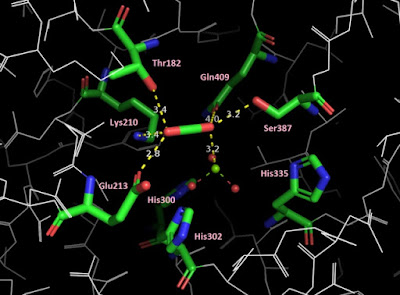The RubisCO Enzyme and Evolution
Believers in universal common ancestry evolution are known to appeal to dysteleology, which is essentially saying that the Creator fouled things up. Such feckless arguments are primarily based on personal preference and often include a fundamental lack of knowledge of the object in question. Fore example, the RubisCO enzyme.
This is evosplained as "inefficient" by people who lack sufficient knowledge of the subject. The enzyme is slow compared to other internal mechanisms, and is one of the earliest to have evolved (evidence not required, just assume). In reality, it is more effective than those who deny the work of the Master Engineer want to admit.
 |
| Credit: Wikimedia Commons / Ericlin1337 (CC by-SA 4.0) |
One of our readers, J.D. from the U.S., asked us a question about the efficiency of the RubisCO enzyme, which takes part in plant respiration:To read the rest of this rather technical response, click on "Is the RubisCO enzyme an ineffective leftover of evolution?"
Hello! So, a certain person I interact with claims that RubisCO, an enzyme in the body, is ‘proof’ that evolution is true, because of its rather poor efficiency and its tendency to accidentally use oxygen instead of carbon dioxide. He says this shows that evolution has selected what works, instead of a well-designed system. Of course, this is patent nonsense; all the other irrefutable evidences show that this argument is fallacious somewhere. I was only able to find one paragraph on the subject in your website, and it did not satisfactorily answer the question: how is he incorrect, and why did God make the enzyme so seemingly poorly?CMI-US’s Dr Matthew Cserhati responds: